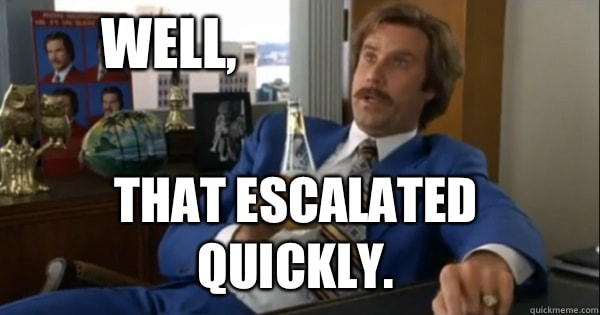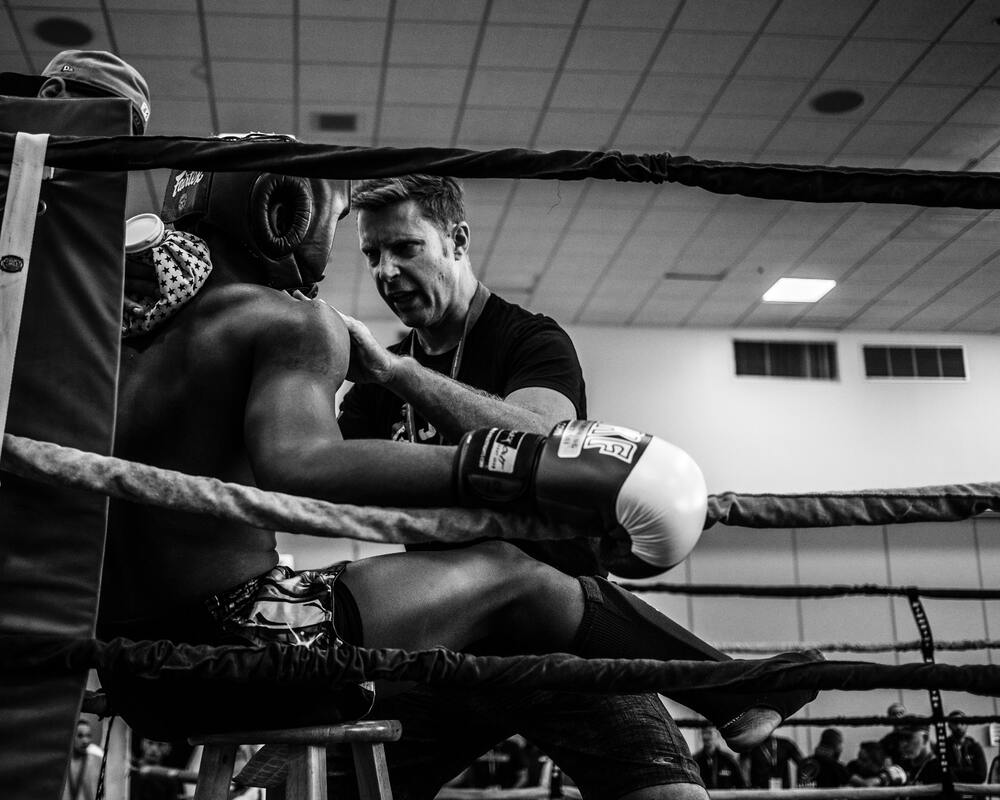|
|
|
It’s well known that folks born in economic prosperity of that post-war aftermath are called Baby Boomers. Their children comprise Generation X, born in the 60s and 70s, who grew up in the 80s. I fall bang in the middle of this, loving the fact that I can say I’m a 69er… New Romantic music like Depeche Mode, Duran Duran and U2 still fill my playlist daily as I drive to graft. I need this to put me a in a better mood whilst I ponder the day’s challenge of herding cats. No, not quite. Managing Millennials isn’t really like this, but certainly feels this way to most “ballies”! Don’t give up hope, you just need to know WHY they are the way they are….and gurus like Simon Sinek have it pretty much taped that WE are to blame for creating Frankenstein! WHAT? SHOCK! HORROR! This part certainly resonates the most with me…“failed parenting strategies” he calls it. I agree – we WERE told we were special – like Pinocchio? A real boy? The age of the 80s and 90s meant we were inundated with business books like Tom Peters and positive thinking YES!YES!YES! speakers. Just because you want it, means you must go and get it. Did you necessarily deserve it is beside the point…. We in turn have told our children that everyone like would be getting something under our chair ala Oprah…everyone is equally special and clearly deserving. Just believe in the Secret, put it “out there” and the universe will automatically deliver you genie-like wishes. LOL if only it was so simple. So what do we as employers do? #1. Manage their expectations. They WON’T change the world in three months, feel enlightened or get promoted by just showing up. #2. Seek prospective employees who have the grit and old fashioned “no quit” gumshen! #3. Do give them “likes” and encouragement. “Old men die for it and babies cry for it” hasn’t changed across the generations even though Instagram seems to define how much they feel they are valued in society. #4. Definitely try to adopt a more flexible working environment if you business allows for it. These precious creatures love flexibility and probably value this above commissions and other long term perks like medical aid. #5. Do embrace their difference and dependence on social media, gadgets and travel experiences they crave. The longer you try and force feed traditional carrot and stick methodologies the more frustrated you as cat-herder will feel! If you LISTEN and are prepared to ADAPT, you make this work in a country where there is an abundance of unemployed (not unemployable!) youth. Most of my over - 45 business colleagues have a belief that it’s only Millenials who won’t return phone calls, emails or messages. For a long time I’ve also been one of this group who stereotype young internet / Netflix-and-chill / online lighties as not having manners or respect to return messages. OK, I exaggerated a bit: Some people return messages—quickly and informatively. But most do not.
I understand that in this always on, wired-in world that there is so much noise out there that something can get lost in the matrix…. point taken. I also admit people are really busy – but seriously, too busy to pop a quick emoji of acknowledgement? What disturbs me is that people don’t seem too disturbed about this… Call me a “ballie”, but I always felt that like opening doors for ladies, returning messages was important, a sign of reliability, a good thing in business. I’ve always made it a point to return all messages regardless of whether it was an unsolicited email or Whatsapp message. I might have left just a very short voice mail or a brief email, but I still returned them. I viewed it as a responsibility. It comes down to two things that leave a bitter taste in my mouth: People are lazy or just plain rude.
Don’t you love these acronyms? CX, or Customer eXperience has morphed over the years from pursuing WOW (sorry Tom Peters) to simply giving better customer service. So what’s the difference?
Experience – the expectations that consumers have today have gone Warp Factor 5 since the advent of the internet, and more so mobility combined with social media. Everyone has a voice, and more and more people want to be heard or at least feel that someone has heard them and has acknowledged their gripe. But being heard above all the noise and the 7+ billion people on the planet is difficult. The frustrations escalate – quickly. A mild emotion can go into full-blown rage if there hasn’t been a response on Facebook, Twitter or an online chat request. Gone are the days of waiting patiently for a few days as the ante has seriously been upped! HelloPeter here we come… What’s the big boo-ha then? E-M-O-T-I-O-N. And this isn’t a Zulu word for “go”! Emotions are directly linked to an experience, good or bad that clients have when they interact with you. But there are two important factors that influence their lifecycle or intensity. TIME and EMPATHY. As time ticks on without any response to a request, invariably mild frustration leads to irritation which leads to anger. Unless tempered early on, companies are faced with the very real risk of losing a client or churning, and along with it the invariable foghorns on social media or around the dinner table. Sadly everyone’s patience has evaporated. This is not unlike seeing two blue ticks denoting read, when sending a WhatsApp message. This frustration of not even receiving a thumbs-up emoticon of acknowledgement drives people into a frothing frenzy. So, be warned – ensure you have a multi-channel strategy to service your clients, but don’t be a Doris…make sure they are MANNED with people who have EMPATHY. Purely having a pulse and responding to these channel interactions is not enough. If you are merely ticking the box for the CX Director you are missing a trick. Without a sincere and deep understanding of the client’s emotional roller coaster they are going through, you may as well hire a bot or an auto-answer responder. With no EQ. these bums-in-seats are as useless as ejection seats on a helicopter. TIP: there are thousands of experienced or even retired people out there who probably are desperate for extra income. Hire folk who have been around the block, and have years of being frustrated consumers. If you want to retain your hard-earned customers, then get serious about the experience they receive at every touchpoint Don't you hate it when you're excitedly telling someone a story, and before you've finished they've interjected and taken the wind out of your sails with regaling their own story?
It isn't merely being disrespectful for the person ....it's shockingly reflective of the me-myself-&-I narcissistic world we live in. Are parents today teaching their children proper manners...or is it just me who is feeling exasperated at the insincerity of it all? Has Instagram or hey-check-how-amazing-my-life-is-on-Facebook turned it's users into 3 second goldfish? Click-click-click-NEXT! Clearly it seems we're not getting enough dopamine or happy drugs with our likes and responses. :-( (emoticon) This has filtered down into how we interact with people, be it face to face or over the phone. The impatience of it all in our rushed lives means we barely give people the real time and respect to tell their own stories with unbiased judgement, or "well-you-think-THAT's-amazing....let me tell you a story of what happened to ME!" Here are a few tips to help you to not only improve your listening skills, but will result in you being perceived as a nice guy (or conversationalist).
Just being a good listener isn't hard work, but it does take discipline. I detest using cliches, but on this topic one probably needs to use a definition at the very least to start some debate or thinking….Here goes anyway: What is DISRUPTION? As a verb: Interrupt (an event, activity, or process) by causing a disturbance or problem. Synonyms: throw into confusion, throw into disorder, throw into disarray, cause confusion/turmoil in, play havoc with, derange, turn upside-down, make a mess of; It’s pretty bizarre when you read this definition that this adjective is used in such a negative way... Where would we be today without streaming services – Netflix? Can you imagine not checking your smartphone 40 times a day to voyeuristically observe people on social media – Facebook, Instagram or even LinkedIn? UBER-ization has fundamentally shifted the old transportation paradigms so much that within a few years it’s become a verb like to “Google”? High speed broadband (mobile) has essentially helped 3rd world countries leapfrog decades of slow fixed-line roll-outs. Without mega-shifters like Elon Musk and TESLA / SolarCity / SpaceX would we be even considering the real possibility of moving away from fossil fuels to the degree that we are, nevermind even contemplating trips to MARS!? There are so many examples of new businesses and technologies that have added positively and massively to the development of our species. So why then are people so afraid of change? Is it too risky or scary for more traditional / conservative folk to try to avoid the slow evolution of man and skip a few steps? Or is it just fear of the unknown and where these new paths may us to? Playing “safe” and not embracing what is possible has led to many cultures feeling angry at this radical thinking. In 2016 we saw the bookmakers making millions by betting against BREXIT. We saw the “silent majority” turn tail at the polls and elect the biggest disruptor to the highest office. Back in the fifties, sociologist Lewis Coser advocated that change is good. However, in closely knit groups in which there exists a high degree of interaction and personal involvement, there is a tendency to suppress conflict. This suppression of frustration can play out in quite dangerous ways if there is no easy way to “vent” or debate. As we have seen recently in the anti-Trump rallies, there can often be occasions for hostility.The acting out of such feelings is sensed as a danger to intimate relationships, and hence there is a tendency to suppress rather than to allow expression of hostile feelings. So if we are to embrace this disrʌption, what needs to change at a personal and societal level? My view is adopting a new mindset – one that comes out of the closet and with glee screams out that the only constant in this new age, is CHANGE. As soon as you come to terms with living out on the “skinny branch” and that life will forever be unpredictable, you may start enjoying the roller-coaster ride. It certainly may be scary at times, but wow it can be fun! In this digital and one-click-away world of email, instant messaging, pokes and likes how can one really say “well done” or “thank you”, better? Perhaps a bigger question is asking whether you are in fact recognizing your staff or colleagues at all…
“Babies cry for it…and grown men die for it“….. – an old saying which holds as true today as ever before. Human beings crave recognition, and the more personal the touch, the more impactful it is to the recipient. Not everyone needs public recognition, often tending to be in the form of an award, although certainly appreciated by those for whom status is a driver though! But a deliberate walk to the desk by the boss giving someone a little squeeze on the shoulder or a whispered but sincere “well done”, can leave people motivated for years! You see it’s the little things in life that make the biggest difference. A hand-written note trumps an email all day and everyday. If not done with heartfelt sincerity though, it will probably be seen for what it is – cheap manipulation. Take the time and make the effort. It’s not always about a shout-out on the company intranet which makes one feel appreciated.
 What makes some people persevere and not quit when the going gets tough? Is this the paradigm of nature versus nurture, or is there something else which can be a predictor of future success? In the endless search for quality call center agents, one guide or lead indicator for perseverance is the nail-in-the-shoe test. As this career is often very repetitive and not always well received by the prospect, it takes a special kind of person to stay long enough to at least get 500 hours under the belt. We’re not talking about Malcolm Gladwell’s 10,000 genius hours here, but enough that the agent gets sufficient experience and confidence to take it to the next level. Otherwise known as having a story-of-struggle, it’s important to try and unpack whether there have been trying times in their past. Now 99% of people you’ll encounter will tick this box, but the important differentiator is finding out whether they rose above it. What did they learn and take from that particular experience or time period? Are they still using this as an excuse of “poor old me” and holding them back, or has this been an ignition point of motivation for them? By using this as one of your arrows in your quiver, you may well improve your hit rate of finding the proverbial needle in the haystack. If you're going to do outbound telesales - Created with Haiku Deck, presentation software that inspires So much of toi-toi-ing lately. Great dance moves guys, but seriously what's the point? "We want jobs! We want jobs!" they chant. - Cool, here are some.... which shock!horror! require you to sit on your bum all day and chat to people on the phone :-) .....
Crk crk crk (cricket sounds to the uninitiated) Government screams out that we require job creation to kick-start the production engine of South Africa. Sadly the youth give these jobs-on-a-platter the "finger" and continue to bemoan the lack of opportunities post-Matric. The problem is not the problem. Generation X – Y – Millennials….call them what you want, right now they are draining our ailing economy. I’m constantly puzzled at the sheer volume of opportunities in my area - the contact center space, and looking at the number of job seekers and bpo’s advertising every day is proof of this. Ironically, there seems to be just a niche of the population that responds and pitches for interviews. Is it that being an “agent” (bloody!) is a title below our youth? Have we continued to perpetuate a Euro-centric attitude that only the BIG 5 careers will satisfy our parents? Doctor, lawyer, engineer, accountant & architect!! All popular career choices, but sadly cost an absolute fortune to study IF you can even get into the right university! So what’s left for Joe Average who has just matriculated and doesn’t have the funds to further their studies? Unfortunely career counselors don’t really push the option of working in contact centers, which is a real pity. The perpetuation of status-oriented jobs which are way beyond the other 98% of matriculants is becoming a big problem. As an employer, I can’t find for love or money enough hard-working, competent and reliable job-seekers who are prepared to get onto the dialler and work! Regardless of the fact that in time there is the ability to earn in the top 20 percentile of the earning populace of this country. Parents…teachers…society – please help South Africa by teaching our youngsters that with hard work and persistence, there are plenty of job opportunities! The days of high status jobs being both accessible and available have long gone. It’s time to kick the laaitie off the couch playing games and sucking the lifeblood out of your wallets! South Africa is about to boom with offshore opportunities who love our neutral accents. Mumbai and Manila – watch out! Our young guys are throwing away their Wi’s and are coming for you! Pavlov’s experiment with dogs around positive reinforcement all those years ago, still hold true to us mere mortals years later.
People would still rather operate in a towards state rather than away state(otherwise known as flight or fright.) As leaders it’s a vital component that we focus far more on catching your team members doing the right things and giving recognition to them for this. So many old school authoritarian style leaders (insert: manager here) spend a good two thirds’ of their time abusing their teams mostly because that’s how they were misled! When you promote and reinforce good behavior, attitudes and performance through reward and acknowledgement, you start to pay the good stuff forward. Regardless of age, when you experience verbal abuse or focused attention on the negatives or the things you’re doing wrong, you end up hating what you do and often hating yourself. Nobody deserves this. Stop the cycle and flip things on the head. Within days of a conscious decision to reward and recognize achievements and improvements, you will see the tide starting to turn. It’s never too late. At first, those who have learnt to live with the abuse (like battered spouses) will appear cynical and very weary of this change in leadership style. And who can blame them? When you’re used to the master beating you every day and suddenly he’s feeding you chocolate treats….well, anyone would be suspicious! Wide ranging research has shown that during performance reviews, over 75% of managers focus on areas of development and only 25% on identifying how one can build on strengths! Over time, this shows up as a fear-based and destructive environment. Creativity, fun and organizational spirit can’t thrive let alone survive in this type of environment. Like a pot plant needs water, nutrients and sunshine, it also needs love and attention. To truly unleash human potential, leaders of today need to take stock of how they are showing up in the workplace. What is their way of being? Are they the type you can picture beating their children or spouses at home, or are they nurturing and supportive? How you show up outside of a working environment is more often than not a clear indicator of what happens during office hours. Be cool. Be positive. Be a successful leader. SIT!
|













